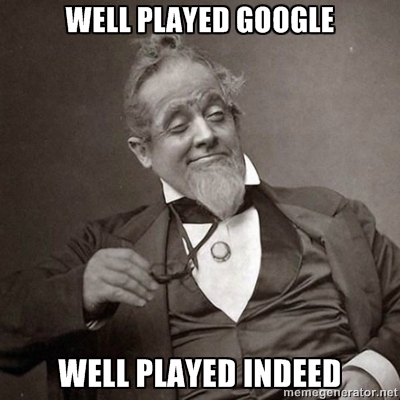Tag Cloud
2007,
2blog,
2do,
2read,
a-trust,
a.trust,
a1,
accessability,
acta,
admin,
advent,
age,
ai,
amazon,
ankündigung,
apache,
apple,
art,
at,
audio,
austria,
backup,
barcamp,
basteln,
bba,
big brother awards,
birthday,
blog,
blogging,
book,
books,
browser,
Browser_-_Firefox,
bruce sterling,
buch,
bürgerkarte,
cars,
cartoon,
ccc,
cfp,
christmas,
cloud,
coding,
collection,
command line,
commandline,
computer,
computing,
concert,
conference,
copyright,
covid19,
css,
database,
date,
datenschutz,
debian,
delicious,
demokratie,
design,
desktop,
deutsch,
deutschland,
dev,
developer,
development,
devops,
digital,
digitalisierung,
digitalks,
dilbert,
disobay,
dna,
dns,
Doctor Who,
documentation,
domino,
Domino,
Douglas Adams,
download,
downloads,
drm,
dsk,
dvd,
e-card,
e-government,
e-mail,
e-voting,
E71,
education,
Ein_Tag_im_Leben,
elga,
email,
encryption,
essen,
eu,
EU,
event,
events,
exchange,
exim,
Extensions,
fail,
fedora,
feedback,
film,
firefox,
flash,
flightexpress,
food,
foto,
fsfe,
fun,
future,
games,
gaming,
geek,
geld,
git,
gleichberechtigung,
google,
graz,
grüne,
grüninnen,
hack,
hacker,
handtuch,
handy,
hardware,
HHGTTG,
history,
how-to,
howto,
hp,
html,
humor,
IBM,
ibm,
ical,
iCalendar,
image,
innovation,
intel,
internet,
internet explorer,
iot,
iphone,
ipod,
isp,
IT,
it,
itfails,
itfailsat,
itfailsAT,
itfailsDE,
java,
javascript,
job,
jobmarket,
journalismus,
keyboard,
knowledge,
konzert,
language,
laptop,
law,
lego,
lenovo,
life,
links,
Linux,
linux,
linuxwochen,
linuxwochenende,
live,
living,
living,
lol,
london,
lost+found,
lotus,
Lotus,
Lotus Notes,
lotus notes,
lotusnotes,
LotusNotes,
lotusphere,
Lotusphere,
Lotusphere2006,
lotusphere2007,
Lotusphere2008,
lotusphere2008,
lustig,
m3_bei_der_Arbeit,
mac,
mail,
marketing,
mathematik,
media,
medien,
metalab,
Microsoft,
microsoft,
mint,
mITtendrin,
mITtendrin,
mobile,
mood,
motivation,
movie,
mp3,
multimedia,
music,
musik,
männer,
nasa,
nerd,
netwatcher,
network,
netzpolitik,
news,
nokia,
notes,
Notes,
Notes+Domino,
office,
online,
OOXML,
open source,
openoffice,
opensource,
orf,
orlando,
os,
outlook,
patents,
pc,
pdf,
performance,
perl,
personal,
php,
picture,
pictures,
podcast,
politics,
politik,
pr,
press,
press,
presse,
privacy,
privatsphäre,
productivity,
programming,
protest,
public speaking,
qtalk,
quintessenz,
quote,
quotes,
radio,
rant,
rant,
recherche,
recht,
release,
review,
rezension,
rezension,
rip,
rss,
science,
search,
security,
server,
settings,
sf,
shaarli,
Show-n-tell thursday,
sicherheit,
silverlight,
smtp,
SnTT,
social media,
software,
sony,
sound,
space,
spam,
sprache,
sprache,
spö,
ssh,
ssl,
standards,
storage,
story,
stupid,
summerspecial,
summerspecial,
sun,
surveillance,
sysadmin,
talk,
talk,
talks,
technology,
The Hitchhikers Guide to the Galaxy,
theme,
think,
thinkpad,
thunderbird,
tip,
tipp,
tools,
topgear,
torrent,
towel,
Towel Day,
TowelDay,
travel,
truth,
tv,
twitter,
ubuntu,
ui,
uk,
unix,
update,
usa,
usb,
vds,
video,
video,
videoüberwachung,
vienna,
vim,
Vim,
vintage,
vista,
vorratsdatenspeicherung,
vortrag,
wahl,
wcm,
wcm,
web,
web 2.0,
web2.0,
web20,
Web20,
webdesign,
werbung,
wien,
wiener linien,
wikileaks,
windows,
windows,
windows 7,
wired,
wishlist,
wissen,
Wissen_ist_Macht,
wlan,
work,
workshops,
wow,
writing,
wtf,
Wunschzettel,
wunschzettel,
www,
xbox,
xml,
xp,
zensur,
zukunft,
zukunft,
zune,
österreich,
österreich,
övp,
übersetzung,
überwachung
